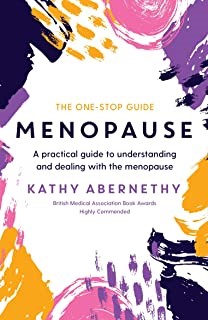
Kathy Abernethy
Menopause Specialist, Coombe Menopause Clinic. Author – Menopause: The One Stop Guide, Director of Menopause Services www.Peppy.health
Everyone’s talking menopause; or are they? Kathy Abernethy considers what more we need to help women through this natural life transition.
In May 2019, BBC Breakfast spent a whole week talking about menopause. This included meeting women, healthcare professionals and employers to discuss the impact of menopause on the lives of women.
Just a few years ago, this would not have happened. Menopause was a secret from all but those going through it. It was hardly discussed between women, let only in public or at work.
Yet, all women who live long enough will experience menopause, some even in their 30s or younger! With women over 50 being the fastest growing group in the workplace, it is becoming increasingly significant to everyone, not just women.
Women’s voices are creating change; healthcare needs to catch up
The change in conversation has been driven mainly by women, wanting menopause to be more widely understood and treated as the natural life event that it is.
There are women who seek help from their doctors only to meet opposition when they ask to consider HRT, which is still the most effective treatment for symptoms.
Raising awareness and generating conversation is the first step, but helping staff to access accurate, personalised support is what makes the difference and keeps women working to their usual high standard.
Healthcare professionals have been working for years to improve medical education around the menopause, but it is only now that women are speaking out that we are finally being heard.
Guidelines written in 2015 are still not fully implemented and women turn to social media for advice that they should get from a healthcare professional.
The healthcare profession is improving, but we need more GP education. Specialist support and advice needs to be delivered in a way that is accessible to all women.
Dispelling myths about the menopause
I would like women to understand what happens during menopause. For them to be aware of lifestyle and diet choices that might improve their health and that low-risk treatments are available.
With three quarters of women experiencing symptoms such as flushes, irritability, anxiety, low mood and vaginal dryness, women should be able to get the information they need to make choices about treatments in an easily accessible way.
Young women with premature ovarian insufficiency should feel confident in their HRT and, for that, we need GPs too to be better informed.
The workforce is getting older – women need support from their employers

Due to the increasing number of employed women over 50, companies are recognising a need for support. Menopause may result in hidden absences, higher long-term sickness, reductions in day-to-day productivity and lower morale. It makes sound business sense to invest in supporting women at work during the menopause transition.
Raising awareness and generating conversation is the first step, but helping staff to access accurate, personalised support is what makes the difference and keeps women working to their usual high standard.
Through Peppy, women can access experienced and qualified practitioners like me, paid for by their company. After 30 years’ working in this field of health, it is exciting for me to see how much more we are discussing menopause and how much more we can do to bring accurate advice and support to women in everyday life.
Kathy Abernethy – www.kathyabernethy.com


